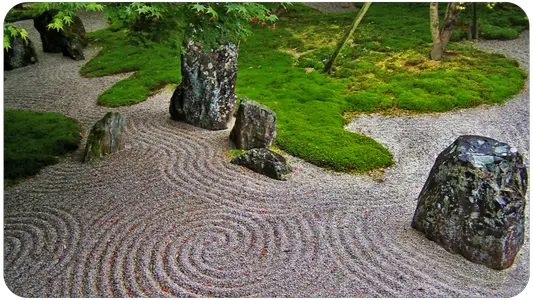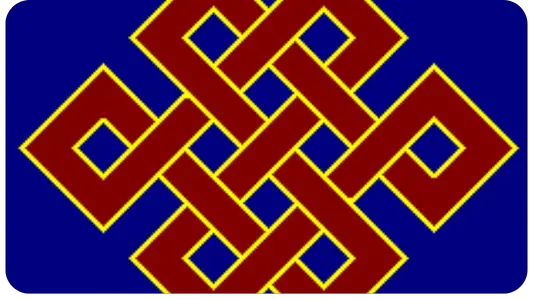Geshe (Tibetan དགེ་བཤེས། Wylie dge bshes) is the name of a Buddhist scholar degree in Tibetan Buddhism (Lamaism).
A Geshe has studied the knowledge of Buddhism and is a specialist in logic, texts, rituals, and correct procedures; Geshes are the custodians of Buddhist knowledge.
Geshe study culminates in one of four Geshe degrees, in ascending order, these are Dorampa, Lingtse, Tsorampa and Lharampa. Training for the highest degree takes about 20 years and is awarded after a series of examinations to be taken annually, which are designed, among other things, to demonstrate the candidate's ability to engage in dialectical debate on all areas of Buddhist theology and philosophy.
For this purpose, six departments of study are traditionally passed:
The teachings on the Transcendent Wisdom Prajnaparamita.
The teachings on the Middle Way Madhyamika
The Buddhist logic Pramana
The teachings on the discipline Vinaya
The teachings on higher knowledge Abhidharma
If one attends a tantric college, one can earn the title of Geshe Ngagrampa.
Training to become a Buddhist scholar (Geshe) takes place in Tibetan monastic universities. The most prestigious are the huge monastic universities of Sera Je and Sera Me, Ganden, Drepung (all near Lhasa), and Tashilhunpo, all of which are under the aegis of the Gelug school but are attended by gifted monks of all schools.
These great monasteries are a kind of elite universities that train the scholars of all monasteries.
Since the Chinese occupation, monastic universities of the same name have sprung up in southern India, which today form the cornerstone of Buddhist scholarship and are attended by thousands of monks.
After graduation, most of these monks return to their home monasteries and henceforth are scholars for the monks in Tibet.
The Geshe degree in the Sakya tradition developed along the lines of the Ka-shi or Ka-chu degree of the Sakya school, which was earned in the Sakya monasteries of Samphu, Kyormolung and Dewachen (later Ratö). In the Kagyu school, trained scholars are called khempo, a designation that in turn denotes an abbot in the Gelug school.
A geshe is a scholar, not a spiritual master (lama). A lama has spiritual experience (or insight) with which he or she promotes the spiritual development of students. In principle, there are no official title assignments for the term lama, although monastic universities appoint monks with special qualities, regardless of their education (i.e., geshe or not) as lamas (lama tongo).
Lamas and rinpoches (tulkus, reincarnated masters) also often complete the traditional Geshe training (for example, the 14th Dalai Lama is also a Geshe Lharampa), but this does not play any particular role in the position they hold as Lama.
As a result of the ban on religion during the Cultural Revolution, for example, one finds tulkus in Tibet who are highly revered as lamas, even though they have received no training (in this life).





